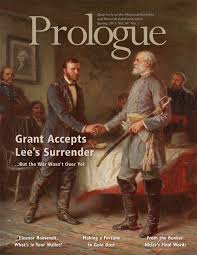** Free Online Webinars
** Do you suffer from MyTreeitis?
**Prologue, Publication of NARA
** Red-Haired People
**Guide to British Census Records
We all like learning, right? And we all like free, right? How about FREE WEBINARS ONLINE? Such wonders are offered several places:
- FamilySearch Learning Center
- Legacy Family Tree
- Southern California Genealogical Society
- Illinois State Genealogical Society
- Wisconsin State Genealogical Society
- Utah Genealogical Association
For more information on these and other free online webinars, check out Gena Philibert-Ortega’s website: http://blog.geneawebinars.com (GeneaWebinars).
**************************************
Do you suffer from the malady known to genealogists as MyTreeitis? Ron Tanner came up with this term and Ben Baker provided the definition: “Mytreeitis is an inflammation common to many genealogists. Symptoms include extreme anxiety over others modifying their extensive genealogical research, possessiveness of ancestors, unwillingness to work in collaborative family trees and disregard for others when removing erroneous persons from their family. This condition usually occurs in more mature adults and is rarely seen in those under 40.”
Tanner and Baker conclude that “learning to effectively use FamilySearch Family Tree has been shown to be an effective treatment for this affliction.”
*************************************

PROLOGUE is the publication of our National Archives. One can subscribe but better yet, the indexes and many back issues are online to peruse and download for free. When you Google-click to the website, and then click to Genealogy Notes, you’ll see a 25-item list of topics from American Indians to World War II. Will this give you ancestors’ names? No, of course not. But Prologue will give you marvelous background information on your ancestor’s life and times.
*********************************

“The ScotlandsDNA research team (www.scotlandsdna.com) has launched a project to find out how many people in Scotland carry the gene for red hair. Less than two percent of people worldwide have red hair, but in Scotland the figure is around 13 percent. The team believes that as many as three times that could carry the gene, and has launched a test for members of the public to find out at a cost of 25 pounds.” (Your Family History, Feb 2013)
Cyndi Ingle told us that red-haired people are called “gingers.” I asked “Grandma Google” and found this answer: A lot of ginger-flavored food has a reddish tint and might be why are redheads called gingers. Consider ginger cake, gingerbread, and ginger snap cookies. All of these foods have a rusty, red color to them.
**Sorry, didn’t have a pix of a red-haired person so used my red doxie.
********************************************************
Another article in this same magazine (which I picked up on a freebie table) gave a step-by-step Guide to Census Returns 1841-1911. “You can easily trace your family back ten years at a time with these vital records” and so you surely can. The magazine article gave a family example….. following one family through these ten years.
Being curious about these British census records, and wondering if the questions asked each decade were much different from the questions asked on our U.S. censuses. FamilySearch to the rescue! Click to www.familysearch.org, and then to the Wiki and then “English Census” and you’ll have that answer for your reading pleasure….just as I did.
********************************
Back when insults had class: “He has all the virtues I dislike and none of the vices I admire.” (Winston Churchill) “He has never been known to use a word that might send a reader to the dictionary.” (William Faulker, about Ernest Hemingway) “I didn’t attend the funeral, but I sent a nice letter saying I approved of it.” (Mark Twain)